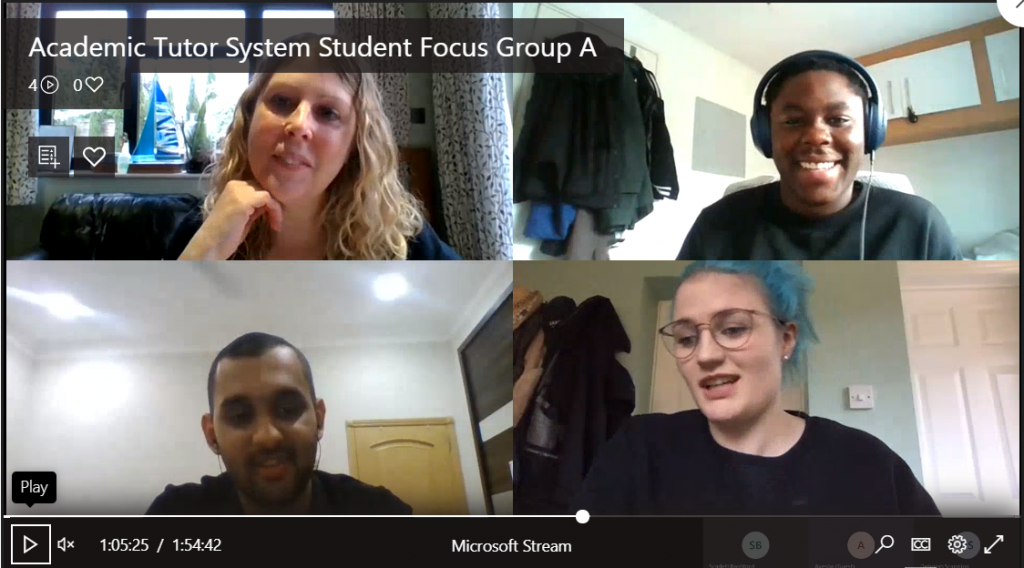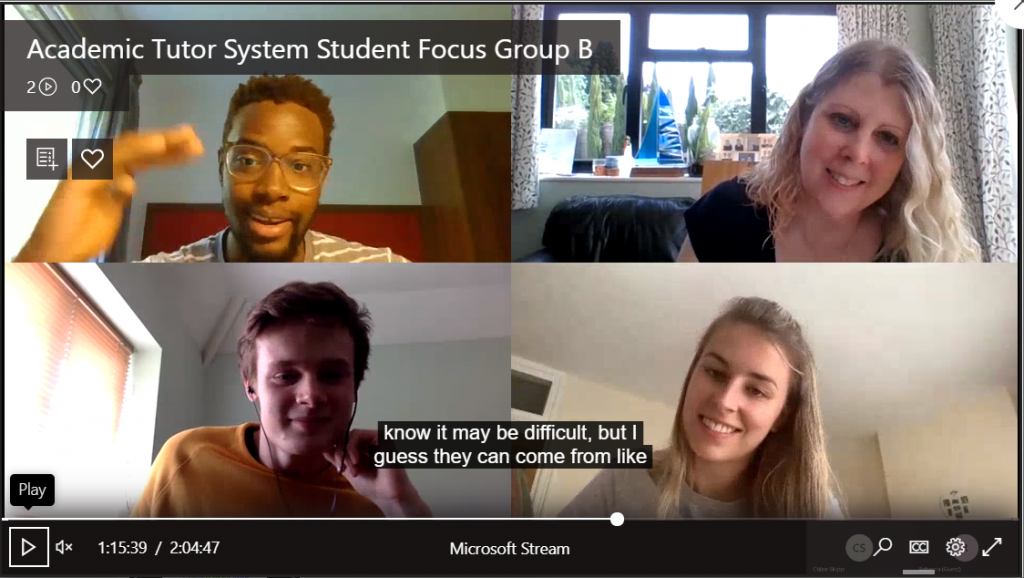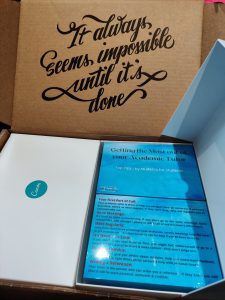Amanda Millmore, School of Law
Overview
I wanted to measure the impact of the new Academic Tutor System (ATS) on the students in the School of Law, and capture their experiences, both good and bad, with a view to making improvements. I successfully bid for some small project funding from the ATS Steering Group prior to Covid-19. The obvious difficulty I faced in the lockdown, was how to engage my students and encourage them to get involved in a virtual project. How can students co-produce resources when they are spread around the world?
Objectives
I planned to run focus groups with current students with dual aims:·
- To find out more about their experiences of the academic tutor system and how we might better meet their needs; and
- To see if the students could collaboratively develop some resources advising their fellow students how to get the most out of tutoring.
The overall aim being to raise the profile of academic tutoring within the School and the positive benefits it offers to our students, but also to troubleshoot any issues.
Implementation
After exams, I emailed all students in the School of Law to ask them to complete an anonymous online survey about their experiences. Around 10% of the cohort responded.

Within that survey I offered students the opportunity to join virtual focus groups. The funding had originally been targeted at providing refreshments as an enticement to get involved, so I redeployed it to offer payment via Campus Jobs for the students’ time (a remarkably easy process). I was conscious that many of our students had lost their part time employment, and it seemed a positive way to help them and encourage involvement. I had 56 volunteers, and randomly selected names, ensuring that I had representation from all year groups.
I ran 2 focus groups virtually using MS Teams, each containing students from different years. This seemed to work well for the 11 students who were all able to join the sessions and recording the sessions online enabled me to obtain a more accurate note which was particularly helpful. I was pleasantly surprised at how the conversation flowed virtually; with no more than 6 students in a group we kept all microphones on, to allow everyone to speak, and I facilitated with some prompts and encouraging quieter participants to offer their opinions.


The students were very forthcoming with advice and their honest experiences. They were clear that a good tutor relationship can make a real and noticeable difference for students and those who had had good experiences were effusive in their praise. They were keen to help me find ways to improve the system for everyone.
Results
The students collaborated to produce their “Top Tips for Getting the Most Out of Your Academic Tutor” which we have created into a postcard to share with new undergraduates, using free design software Canva https://www.canva.com/.

The students also individually made short videos at home of their own top tips, and emailed them to me; I enlisted my teenage son to edit those into 2 short videos, one aimed at postgraduates, one for undergraduates, which I can use as part of induction.
From the project I now have useful data as to how our students use their academic tutor. A thematic analysis of qualitative comments from the questionnaires and focus groups identified 5 key themes:
- Tutor availability
- Communication by the tutor
- School level communication
- Content of meetings
- Staffing
From these themes I have drawn up a detailed action plan to be implemented to deal with student concerns.
Impact & Reflections
One of the main messages was that we need to do better at clearly communicating the role of the academic tutor to students and staff.
The students’ advice videos are low-tech but high impact, all recorded in lockdown on their phones from around the world, sharing what they wish they’d known and advising their fellow Law students how to maximise the tutor/tutee relationship. The videos have been shared with the STAR mentor team, the ATS Steering Group and the MCE team now has the original footage, to see if they can be used University-wide.
I am firmly convinced that students are more likely to listen to advice from their peers than from an academic, so am hopeful that the advice postcards and videos will help, particularly if we have a more virtual induction process in the forthcoming academic year.
Ultimately, whilst not the project I initially envisaged, our virtual focus group alternative worked well for my student partners, and they were still able to co-create resources, in a more innovative format than I anticipated. My message to colleagues is to trust the students to know what will work for their fellow students, and don’t be afraid to try something new.